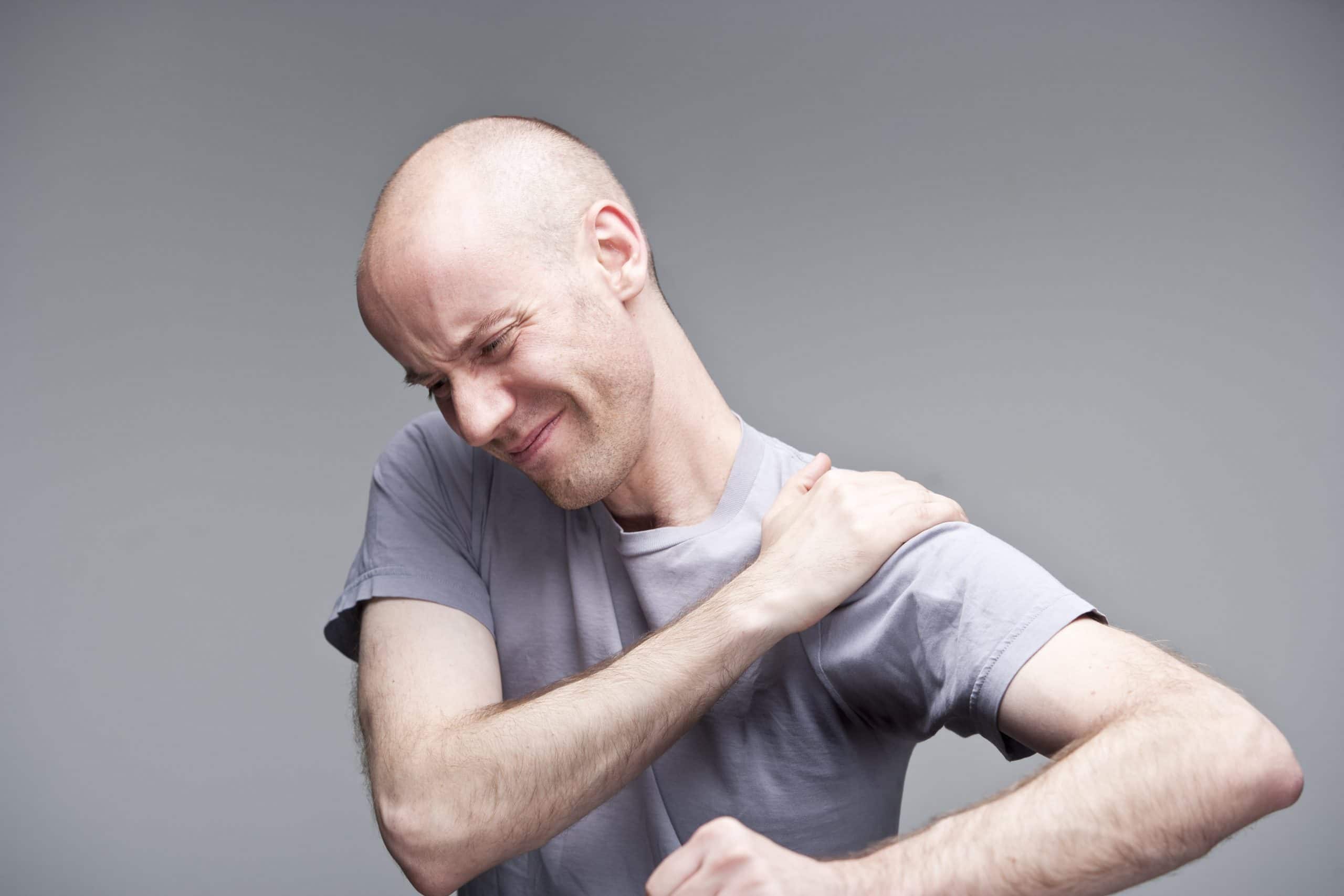
If you’re experiencing pain in your shoulder or weakness in your upper arm, you may have a common injury known as a rotator cuff tear. This issue may make daily activities such as getting dressed or reaching for an item on a shelf more difficult because the injury is often accompanied by pain.
Tears to your rotator cuff can happen suddenly due to an injury or develop slowly over time. Two different types of rotator cuff tears can occur — complete and partial (also known as incomplete). In this post, we will discuss the difference between the two kinds of rotator cuff injuries.
What Is the Rotator Cuff?
Your shoulder joint is called a ball-and-socket because the head or ball portion of the humerus fits into the socket located in the shoulder blade. The rotator cuff is made of four tendons that hold your arm in place, securing it to your shoulder.
The tendons comprising the rotator cuff stabilize your shoulder and allow it to move smoothly and without pain. The four tendons also serve to connect a muscle originating in the shoulder blade to part of the upper arm bone.
Difference Between Complete and Partial Rotator Cuff Tears
When one or more of the tendons that form the rotator cuff is torn, this tissue no longer fully attaches to the head of the humerus. The supraspinatus tendon is the one most likely to become torn. However, other parts of the rotator cuff may also be involved in the injury.
Tears to your rotator cuff can be caused by injury or tendon weakening from:
- Wear and tear
- Disuse
- Repeated cortisone injections
- Smoking
Torn tendons often begin by fraying. If the injury remains unaddressed, the damage progresses, and the tendon can completely tear:
- Partial tears: Also called incomplete tears, the damage experienced by the tendon does not sever it completely.
- Complete tears: More commonly referred to as a full-thickness tear, this injury entirely separates the tendon from the bone. Basically, it creates a hole in the tendon.
Non-Surgical Treatment Options Available for Rotator Cuff Tears
If you’re experiencing shoulder pain and you keep using the shoulder, a rotator cuff tear can get larger, causing further damage. That’s why it’s crucial to see your doctor when you experience chronic shoulder and arm pain. Early treatment is essential to prevent symptoms from worsening.
At OrthoBethesda, our main treatment goal is to reduce your pain and restore full function as soon as possible. Every patient is different, and our treatment recommendations will vary depending on your individual circumstances. That said, we generally focus on non-surgical treatments first and foremost, such as:
- Rest: You’ll use a sling or limit activities that involve your shoulder.
- NSAIDs: Nonsteroidal anti-inflammatory drugs like ibuprofen can reduce swelling and pain.
- Physical therapy: Certain exercises can strengthen your shoulder and help restore flexibility, range of motion and overall movement. Your exercise program can also help relieve pain and prevent further injury to your shoulder.
- Injections: Sometimes an injection of a local anesthetic or corticosteroid can help reduce painful symptoms. Cortisone medication is an anti-inflammatory, yet it doesn’t work for all patients.
When Is Surgery Necessary for a Rotator Cuff Tear?
If your symptoms and pain don’t improve after you attempt non-surgical treatment techniques, your doctor may recommend surgery. Surgical procedures may also be the first course of treatment if you’re active or require full use of your arm for overhead work.
Here are some other issues that may make surgery necessary for repairing your rotator cuff tear:
- Symptoms have lasted longer than six months.
- Your rotator cuff tear is more than three centimeters in length, yet the surrounding tissue is healthy.
- Side effects include significant weakness or loss of shoulder function.
- The tear was caused by recent trauma.
Your orthopedic surgeon will discuss your rotator cuff surgery with you ahead of time so that you fully understand the details and recovery process. The procedure often involves re-attaching the affected tendon to the head of the upper arm bone, but there are a few surgical options your surgeon may employ.
Call OrthoBethesda If You Suspect You Have a Rotator Cuff Tear
If you know you have a rotator cuff tear or suspect that pain in your shoulder or arm could be caused by this type of injury, don’t wait. If you live in or near Bethesda, MD, we invite you to contact us to schedule your appointment at OrthoBethesda today. If you live in or near Arlington, Va, schedule an appointment with our Arlington office.
Related Content
- Can a Rotator Cuff Tear Heal Without Surgery?
- Can You Drive After a Rotator Cuff Repair?
- Rotator Cuff Disorders: The Facts
- The Difference Between Rotator Cuff Tears and Shoulder Tendonitis
- Types of Rotator Cuff Tears
- When Not to Have Rotator Cuff Surgery
- Shoulder Pain – Frozen Shoulder
- How to Avoid Shoulder Pain While Playing Golf
- Why Sleeping on Your Side Is Killing Your Shoulder
- Shoulder Pain – Cervical Spine
- The Ultimate Guide for Shoulder Recovery Surgery
- Does a Broken Shoulder Need Surgery?
- How Dr. Craig Miller Uses New Technology to Improve Shoulder Surgery
- Shoulder Arthritis and Shoulder Replacement
- How to Sleep After Shoulder Surgery
